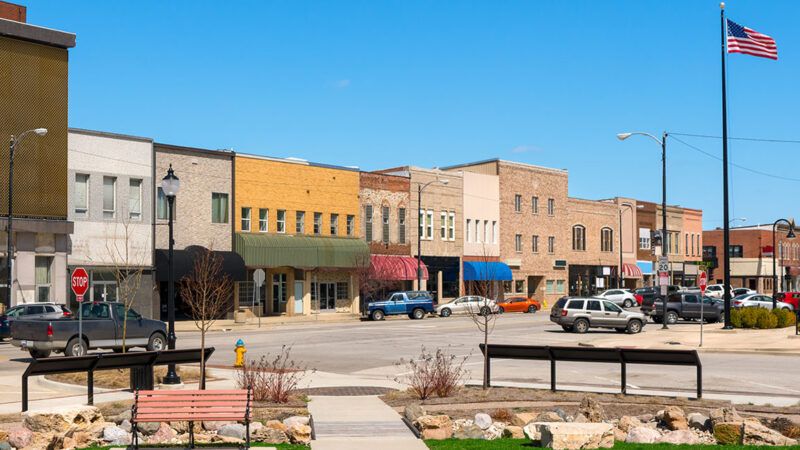Small-Town Life Is the Anti-Twitter
The era of the internet could use a little of the discipline, moderation, and tolerance imposed by a familiar, physical community.

When I moved from New York City to rural northern Arizona, I faced two obstacles: my vocabulary and my manners. Spicy language and brusqueness were normal in the East Village, where I was unlikely to see many faces again. But they were impediments in a sparsely settled place where you run into the same people day after day. Life in a relatively rural area encourages nicer manners, so I learned to rein myself in.
The lesson doesn't come easily for everybody. "Could you do me a favor?" a Flagstaff bartender once asked me. "Could you go talk to that tourist for me? He's from New York, like you, and I just…can't. The beers are on me if you deal with him." I spoke to the guy, who resembled an exaggerated version of myself from a few years earlier. He wasn't deliberately rude, but he was in-your-face and sharp-tongued, reflecting manners shaped by faceless crowds.
"For centuries," Conor Friedersdorf wrote in 2010 for The Daily Dish, "one reason people have chosen to live in cities is the comparative privacy that they offer: unlike [in] the small town, where everybody knows your business and community ties are pervasive, the city dweller can cultivate strong community ties if he likes, even as he is an anonymous man in the crowd everywhere except his apartment elevator, his weeknight soccer league, and trivia night at the corner pub." Friedersdorf wondered if the internet would end that anonymity.
It is harder than it used to be to disguise our online identities, as anybody who has been doxxed over a tweet can attest. But the internet did allow "city dwellers to calibrate their community ties as they saw fit," in Friedersdorf's words. Anybody can find communities in the digital world. But small towns and rural areas make you interact with familiar and not always like-minded people when you step outside.
"Everybody knows everybody," retired journalist Bill Bishop noted in a 2022 Politico interview, describing La Grange, Texas, the rural town he moved to from Austin, the state capital, several years ago. "Everybody goes to the same church. Everybody goes to the same clubs. The town isn't big enough to have a liberal club over here and a conservative club over there. If you're working on X problem, you work with everybody, and so the size of the place mitigates against segregation."
Bishop is the author of The Big Sort: Why the Clustering of Like-Minded America Is Tearing Us Apart (2009). By moving from Austin to La Grange, he aimed to counter the phenomenon he had documented of self-selection into ideologically homogeneous communities. He wanted to put himself on the other side of the political and cultural divide in a search for understanding. He discovered that his new community was more blended and required greater contact with different people than the city he left behind. "The diversity of small towns is more interesting than the sort of mono-politics of the big city," he noted.
That diversity and familiarity can also be demanding. If you blow your stack at the clerk in the grocery store, it will be remembered. If you cheat somebody on a business deal, forget about future investors. And if you get caught frolicking on an exam table with one of your medical assistants, as a married local physician near here did a few years ago, call the movers; you're done.
That's not to say you won't find curmudgeons in rural areas; we're knee-deep in them. It's been 20 years since my buddy Bryan passed away of complications from a brain infection. (I wrote about him in 2013 in "Leave Room for the Mountain Men.") He was committed to an eccentric lifestyle, living off the grid for half the year. But Bryan knew how to behave in town; those who don't tend to drift and disappear when their reputations are tarnished. It's a lot easier to get away with misbehaving on Twitter than in the few places available to sell you food and beer.
Seeing the same faces every day isn't for everybody. Anonymity can be a powerful temptation, with its assurance that mistakes and lapses of temper won't follow you as baggage. But the era of the internet could use a little of the discipline, moderation, and tolerance imposed by a familiar, physical community.


Show Comments (77)